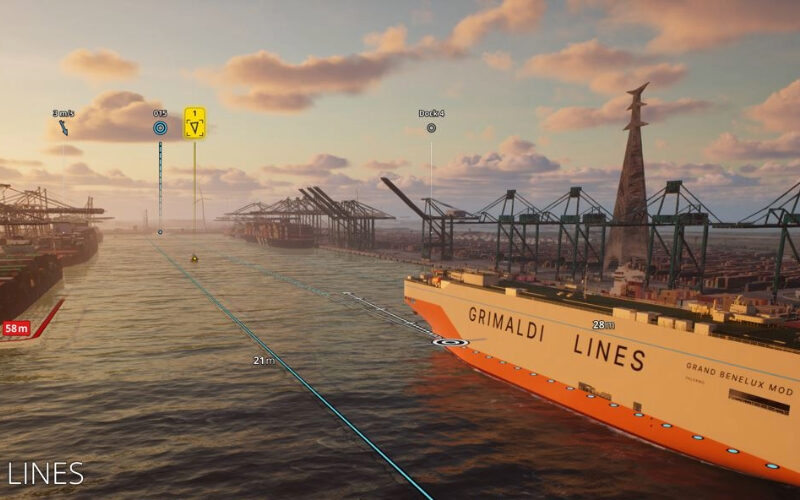Italian logistics and transport company, Grimaldi Group, has announced the commencement of the Grimaldi Satellite Berthing 2 project (GSAB2).
This is the evolution of the previous GSAB project, which had been assigned to the Grimaldi Group by the European Space Agency (ESA) within its Navigation Innovation and Support Program (NAVISP) in 2022, and whose aim was to develop and validate the first assisted guidance system with satellite technology for docking manoeuvres of large Pure Car & Truck Carrier (PCTC) vessels.
After the success of GSAB, the new project will verify the suitability of the designed system to achieve Autonomy Level 2 as defined by Lloyd’s Register. This condition is met when all actions at the ship level are taken by a human operator on board the vessel, but decision support tools can present options or otherwise influence the actions chosen.
GSAB2 aims to achieve Autonomy Level 3, where ships make decisions and act autonomously with human oversight.
Grimaldi Deep Sea S.p.A. will lead an international team including Norway’s Kongsberg, specialising in signal processing technology, and RINA Services, responsible for testing and certification, along with RINA Germany.
The Grimaldi Group will also collaborate with Italy’s Radiolabs Consortium to design, execute, and validate the system in real-world conditions.
GSAB2 will utilise satellite-based multi-sensor technologies from GSAB to enhance port manoeuvre efficiency, and safety, and reduce CO2 emissions. It will develop AI-based algorithms and an interface for the Ship Automation system.
Building on GSAB’s success, Grimaldi Deep Sea S.p.A. plans to develop an advisory system for safe and efficient berthing of large vessels, focusing on autonomous navigation, berth planning, optimal sailing in ports, situational awareness, and user interaction.
READ: Grimaldi Group gains 20-year concession at Amsterdam terminal
In addition, the GSAB2 team will study the prerequisites for reaching the Autonomy Level 3 by establishing an exhaustive set of requirements and verification criteria.
This phase will involve a joint Hazard Identification (HAZID) study of an autonomous berthing operation, the development of Key Enabling Technologies, the analysis and definition of the user interaction philosophy and visualisation, the identification of prerequisites for equipment and of requirements for interfaces for an autonomous control system.
Last September, Grimaldi Group delivered the ‘Great Lagos’ containership to the Hyundai Mipo Dockyard Co. Ltd. in Ulsan, South Korea.








